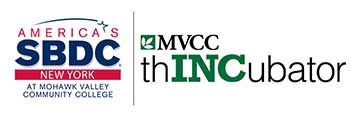 Today I received Robert Scoble’s latest email newsletter and contained in it was some great insights for startups and founders on what makes an effective pitch. Robert travels all over the world discovering what’s next in tech and startups as part of his job at Rackspace, and if you want to keep tabs on the technologies and companies that are working to change the world, I’d highly suggest signing up for his newsletter or following him on Facebook. I’ve also had the pleasure of meeting Robert at SXSW and he’s just a blast to talk to.
Today I received Robert Scoble’s latest email newsletter and contained in it was some great insights for startups and founders on what makes an effective pitch. Robert travels all over the world discovering what’s next in tech and startups as part of his job at Rackspace, and if you want to keep tabs on the technologies and companies that are working to change the world, I’d highly suggest signing up for his newsletter or following him on Facebook. I’ve also had the pleasure of meeting Robert at SXSW and he’s just a blast to talk to.
Anyway, the following is taken directly from his latest newsletter. Enjoy!
This morning I spoke to business students at the University of California and one of them asked me, “what was your favorite pitch?”
Of course I remember my winners.
Things like seeing Instagram, Siri or Flipboard early on. I also remembered all the crappy ones. I told the student, “if you pitch something in a crowded market, you put me to sleep, so you better have a few reasons why I should wake up.”In other words, if you pitch me yet another phone, you better explain why I should care. After all, I’ve already decided on my phone and so have most of my readers. If I’m going to tell my readers about a new phone, it better have something that makes it interesting (like if it has a bunch of new sensors).
Some lessons about pitches:
- The best are short. Think about it, did you really need to know much more about Uber than, “way better than taxis?” No.
- A great pitch hits real pain.
- To win contests, like this one, you pretty much have to be for everyone. But I did find a new app for parents with autistic kids by doing this (https://www.facebook.com/birdhouseforautism/), so it’s worth trying, no matter how narrow your company is.
- A great pitch has a URL or a call to action, or, preferably both. “Download Uber at http://www.uber.com.”
- A great pitch has some social proof: “used by Starbucks in all of its stores.”
- It tells us what makes the company different.
- It uses clear English with a minimum of jargon.
- In a few words, it makes us CARE about the product or company.
- It uses as few words as possible. If hyperbole is used, you can reduce the number of words. “Uber is better than taxis” is better than “Uber is the leading service that’s better than taxis.”
- Startups done by kids win. Renata Kotscho Velloso · http://www.healthymission.us is a startup created by my 11 year-old daughter that uses Instagram to help kids enjoy eating right.



